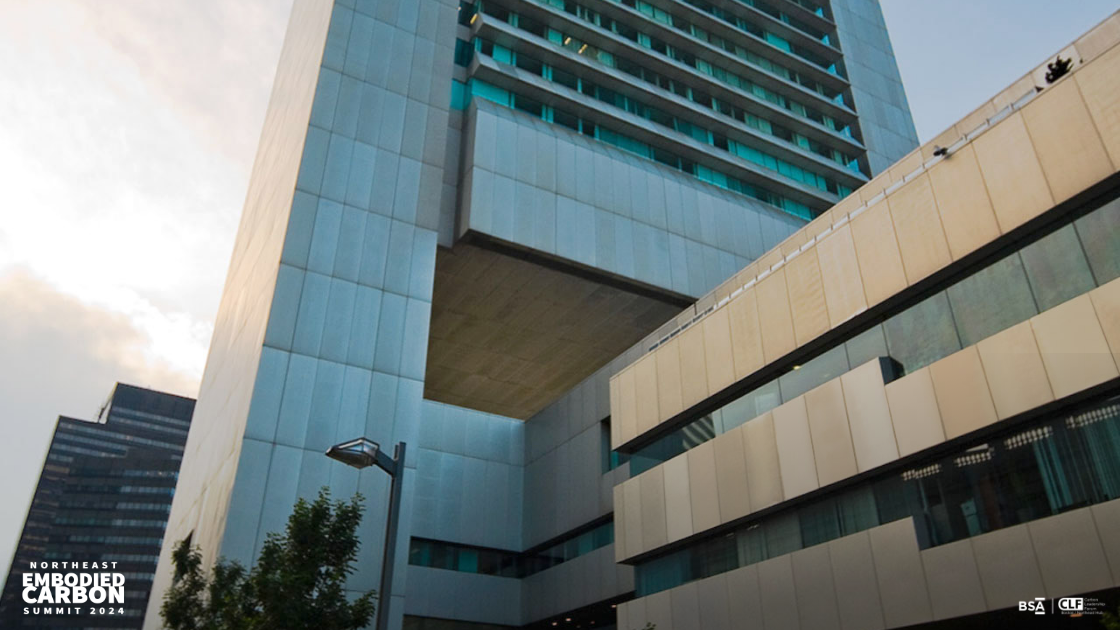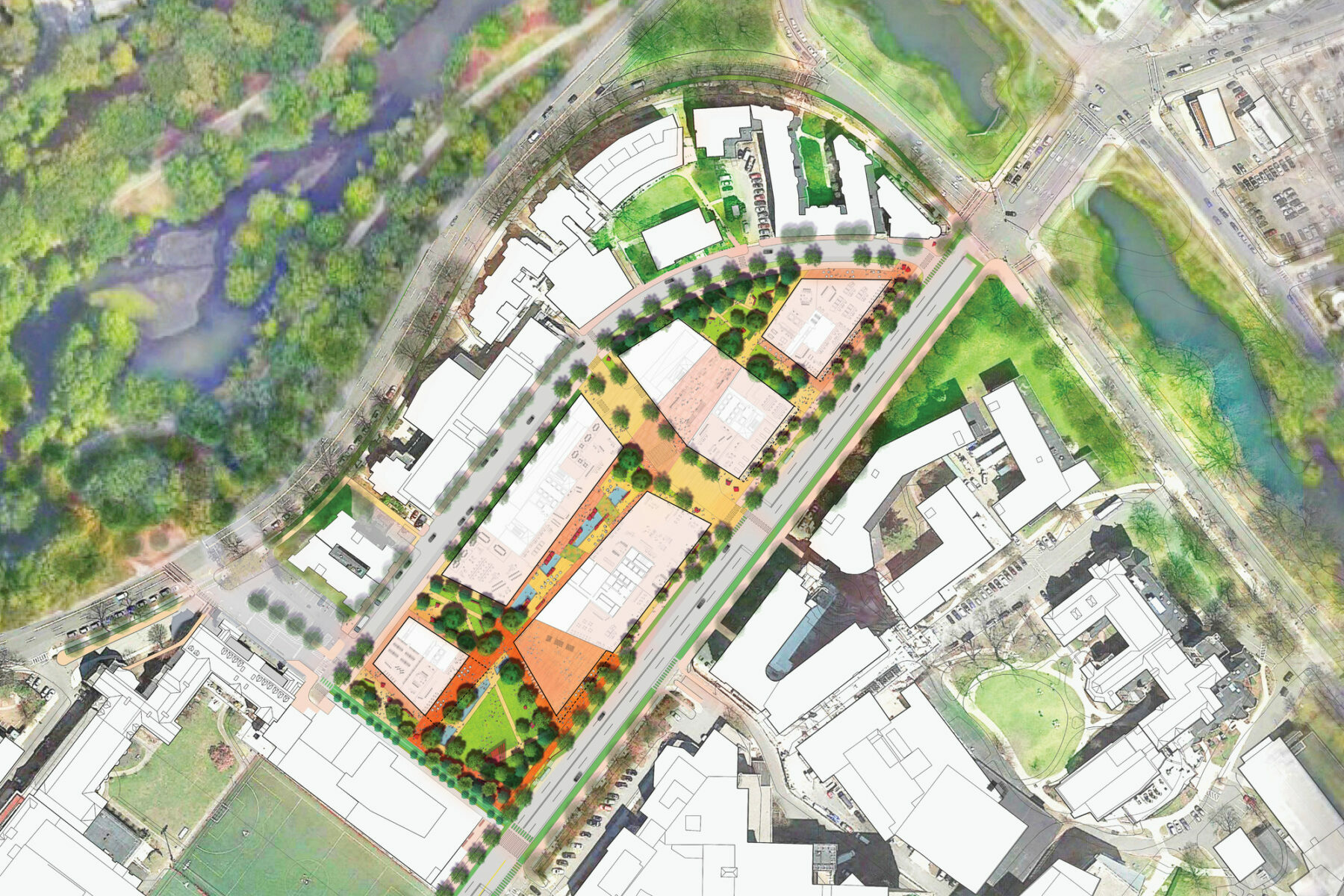The Growing Importance of Reducing Embodied Carbon in the Fight Against Climate Change

Five years have passed since the BSA held its inaugural Embodied Carbon in Buildings Conference. During this time, significant progress has been made in policy development and best practices for reducing embodied carbon emissions in our built environment, both in Massachusetts and nationwide. The BSA, in partnership with the Carbon Leadership Forum Northeast/Boston Hub, are co-hosting the upcoming Northeast Embodied Carbon Summit 2024 to dive deep into these topics and identify collective initiatives to advance opportunities and identify clear avenues to address these emissions.
For far too long, the focus of the AEC industry was disproportionately fixated on operational carbon emissions, neglecting the substantial impact of embodied carbon throughout the lifecycle of our built environment. As Whole Building Lifecycle Assessment (WBLCA) tools begad to develop, the seriousness of the broader issue was more fully understood. Massachusetts has demonstrated its leadership by spearheading innovative initiatives aimed at addressing these emissions, identifying best practices, and engaging stakeholders in this critical issue.
Some prime examples:
In the City of Boston, the BSA and Boston Planning & Development Agency (BPDA) partnered to embark on a Mass Timber Accelerator program in order to support the City of Boston’s goal to be carbon neutral by 2050. This accelerator program aimed to raise awareness of the carbon and economic benefits of mass timber, introduce practitioners to the details and feasibility of mass timber construction, and result in new building projects constructed with mass timber material. The Mass Timber Accelerator Program resulted in an increase of the use of mass timber materials, mass timber projects within the city, and the newly updated Zero Net Carbon Building Zoning initiative. The BPDA just concluded their public comment period and released the final draft of their proposal on June 5th which includes embodied carbon reduction policies. Learn more here.

One of the awardee projects, Longwood Place, by Sasaki.
At the state level, AIA Massachusetts has been at the forefront of advocacy efforts, championing legislation that directly addresses embodied carbon. These bills would put forward best practices and recommendations to reduce embodied carbon, buy-clean policies, and incorporating embodied carbon into the stretch and specialized building code. With three key pieces of legislation currently under consideration, now is the time to prioritize advocacy measures to ensure these critical policies materialize into tangible action. Get involved and engage in these advocacy avenues by checking out ways to support here.
These initiatives are just a fraction of the groundbreaking work underway in Massachusetts. There are so many different avenues for Massachusetts to become a leader in this space and advance policies that address these critical emissions. It is so important that we continue to push the needle in innovation, engagement, and policy creation. The AEC industry holds a key role in advancing the solutions to address embodied carbon and advocate for change both at the local and state level. To delve deeper into these vital discussions and explore opportunities for involvement, we invite you to join the BSA at the Northeast Embodied Carbon Summit 2024 on June 20th and 21st. Together, let us continue pushing the boundaries of what is possible and charting a sustainable future for generations to come. Learn more here.


